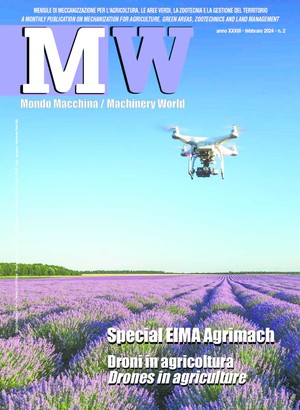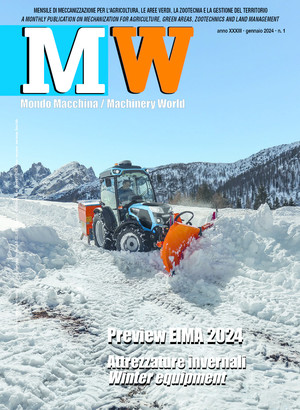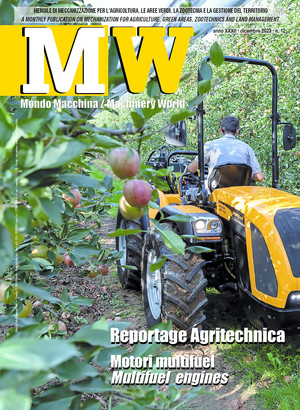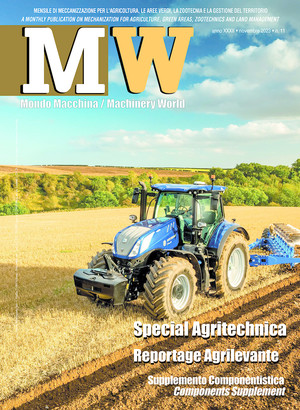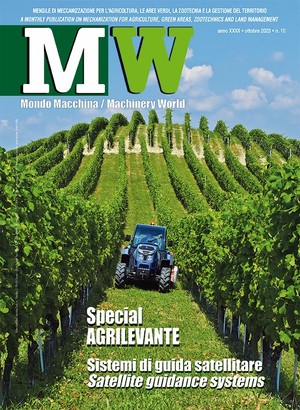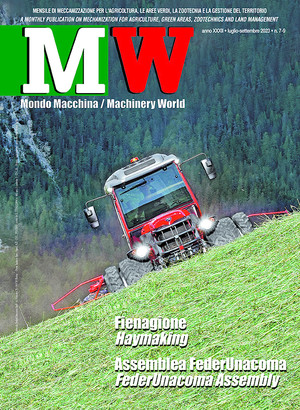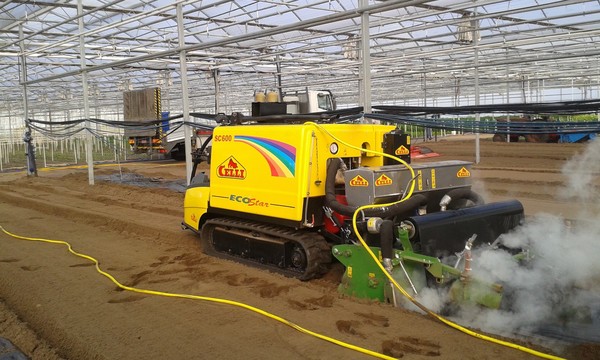
Celli, a range of machines designed for organics
The catalogue of this company from Romagna includes 60 models distributed over 10 product lines, and the technologies for organic farming occupy a leading position. The spotlight is on the rotary tillers for minimum soil tillage and the Ecostar SC 600 disinfestation machine that destroys harmful microorganisms with the strength of lime and steam
The Celli company from Forlì has always specialized in the production of professional machines for working the soil, and it now strengthens its position in the organic application sector with a wide range of dedicated machines. It starts with the range of rotary tillers, a segment where the Romagna company has its core business and which, just recently, saw the debut of the Pioneer P 140 Bio. The strong point of the Celli rotary tillers is its technology for minimum soil tillage (from 3 to 9 cm deep). “The machines - explains the company in a technical note - are equipped with sharp hoes and a fan designed to deposit the tilled soil on the ground, which, in this way, performs the same function as compost”. This, however, is not the only benefit of the Celli applications. The rotary tillers of the Romagna company are prized for their low fuel consumption and for a construction approach that is attentive to protecting the environment. These characteristics, the manufacturer explains, have allowed the technology of the Forlì brand - the aforementioned Pioneer P 140 Bio, the fixed models Ergon and Tiger, and the folding models Tiger 280 and Super Tiger 360 P - to establish themselves also abroad. On the Austrian, Swiss and German markets, and today also on the French and US markets. Celli’s offerings for organic farming are not limited to rotary tillers. They also include the soil disinfection and disinfestation segment, where the Forlì company is present with its Ecostar SC 600. This machine uses a patented system that involves an inoculation of lime in the soil (using a spreader and rotary hoe), an exothermic reagent with low environmental impact, and a double inoculation of steam (on the surface and at a depth of 20/25 centimetres). The interaction between the steam and the lime produces an exothermic reaction that keeps the temperatures in the ground high for the time necessary to generate a phenomenon similar to pasteurization. This way, Celli’s technology makes it possible to “reclaim” the soil from weeds and pests without introducing chemicals into the environment that are harmful to both the operator and the “good” microorganisms, i.e. those useful for cultivation and for the product itself. Moreover, the pasteurization technique of the Ecostar SC 600 is very advantageous also because it helps prevent the phenomenon of “biological vacuum”, i.e. the development of microorganisms resistant to chemicals, microorganisms that require the use of increasingly intensive treatments to be eliminated. Celli’s technology has already been successfully tested on many pathogens, including root-knot nematodes (zucchini, lettuce and potato crops), sclerotinia minor (lettuce), rhizoctonia solani (radish), fusarium (aubergine, basil), verticilium and rhizoctonia (tomato) and monosporascum cannonballus (melon), as well as on weeds such as portulacca, ciperus and amaranthus. This is precisely why the Ecostar SC 600 is attracting the interest of growers of fourth-range products, and is getting positive feedback in France, Germany, Holland and Hungary. The tests and trials in the field continue today to constantly improve the technical profile of an application fully in line with the needs and standards of organic farming.



